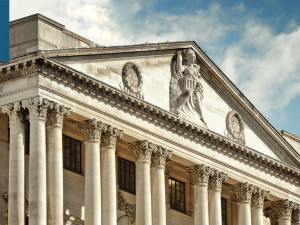
Consumers facing further pressure
Morning mid-market rates – The majors
5th April: Highlights
- New loan guarantee scheme under investigation
- Fed needs to boost consumer spending
- Lagarde sees inflation being higher for longer
Cunliffe swimming against the tide
Yesterday he spoke of his doubts that the Bank will have to take sustained action to curb public expectations that high inflation will become ingrained since, so far, those concerns have failed to materialize.
He acknowledged that inflation would need to be tackled, but does not see a comparison with the 1970s, when an energy shock saw inflation rise and stay elevated.
The conflict in Ukraine will lead to a substantial downturn in economic activity. This will be worse than the Central bank predicted in its latest bulletin, released in February, and will last well into the first half of 2023.
Cunliffe warned against the public becoming convinced that high and rising inflation would need to be countered by higher pay awards.
In the 1970s, inflation had been rising for a considerable time before the energy shock hit, while this time around, inflation has been well controlled for a considerable time.
The markets are pricing at a rate of 2% by the end of the year. While this is not high in historical terms, it is significantly higher than has been the norm in recent times.
There is no doubt that the Russian invasion of Ukraine will see a follow through that tightens the squeeze on UK household incomes, which will lead to a fall in domestic consumption.
Employment continues to face a story of strong demand and weak supply. This has been intensified by both the Pandemic and Brexit. The departure of the UK from the European Union has led to serious worker supply shortages in the hospitality, farming and social care sectors.
Yesterday, the pound traded in a narrow range. It reached a high of 1.3137 and closed at 1.3117.
Considering your next transfer? Log in to compare live quotes today.
Fed won’t be blown off course
That is far from the core expectation of the Federal Reserve, although its reputation in forecasting future events is a little tainted.
No matter the market’s belief that hiking rates to between 2.25% and 2.50% will slow the economy to such an extent that it will lead to a contraction of activity. The Fed sees promoting growth and fighting inflation as mutually exclusive.
There are growing expectations that a reduction in the size of the Fed’s balance sheet will be in play at the next FOMC meeting, although that is a month away.
The minutes of the latest FOMC meeting will be released tomorrow, and this is seen as the week’s key event.
At that meeting interest rates were raised by twenty-five basis points and the market will want to know more about who said what and who favour a more hawkish stance.
Following that meeting, the committee published its latest summary of economic projections. The median forecast for personal consumption expenditure rose from 2.6% in December to 4.3% in February. It is likely that this may be raised again. This forecast led to an increase in expectations of the overall size of rate hikes from seventy-five basis-points to one hundred and seventy-five basis-points.
The prediction for the cut in the size of the balance sheet was a little less certain. The statement said that the Bank’s holdings of Treasury Securities, agency debt and mortgage-backed securities would be reduced at a future meeting.
Jerome Powell indicated that the minutes would contain further information about the run-off. What comes out of the minutes will be a major indicator of the Bank’s more hawkish stance. If it intends to reduce the balance sheet during the current hiking cycle, that will be seen as a hawkish move.
This will see the U.S. economy diverge even more from the UK and eurozone and see the dollar index move closer to the 100 level.
Yesterday the index rose to a high of 99.08, closing at 98.98.
As inflation rises, fighting recession will need more support
It is concerning the markets that ECB President Christine Lagarde acknowledges the high level of inflation but does not see a threat of stagflation coming from reduced growth and activity.
ECB Governing Council Member Isabel Schnabel spoke yesterday of her belief that the ECB will begin to hike rates, dependent in part upon the fallout from the conflict.
Inflation remains skewed towards even higher levels than were seen in February and published last week.
The bank will be keeping an eye on wage increases which, so far, have not been rising as an effect of raised inflation.
The Chief Executive of Deutsche Bank spoke yesterday of his fears for the German (and therefore the Eurozone) economy. He believes that the country will face a deep and long-lasting recession if imports of Russian oil and gas are completely halted.
As things stand, that is the policy that has been announced by the German Government to take place by the end of the year. It will unnerve markets further if activity in March was reduced, since the cut in imports has already begun.
There has been calls for the Government to step up the level of aid it is prepared to provide to ailing sectors of the economy.
Christian Sewing also believes that the net asset purchases by the ECB should be concluded to drive inflation down. He believes that this would send a signal to the market that the Central bank is serious about its concerns.
It is hard to see how the Eurozone can avoid a recession now, but in the long term, it may be recovering from the fallout just as the U.S economy enters its own recession. Were this scenario to come to fruition, it could see the single currency bottom out, and begin a long climb back towards fair value which is seen around 1.30.
Yesterday, the euro fell to a low of 1.0960 and closed at 1.0973.

About Alan Hill
Alan has been involved in the FX market for more than 25 years and brings a wealth of experience to his content. His knowledge has been gained while trading through some of the most volatile periods of recent history. His commentary relies on an understanding of past events and how they will affect future market performance.”



